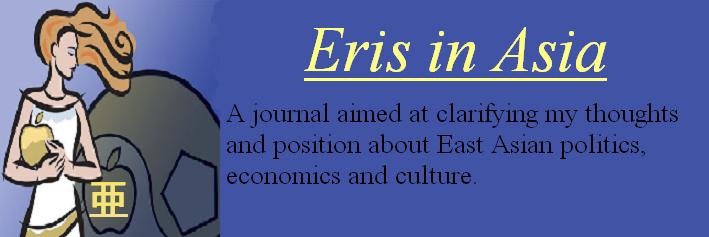This year has seen significant progress in negotiations, the outcome of which were only revealed at the ASEAN Plus Three summit in November. Early indications that an agreement might finally be reached occurred in August at the 14th ASEAN Economic Ministers Plus Three (AEM+3) Meeting in Indonesia. The final communication of which welcomed “the joint proposal by China and Japan, ‘Initiative on Speeding up the Establishment of an East Asia Free Trade Area (EAFTA) and Comprehensive Economic Partnership in East Asia (CEPEA)’.
Until this joint proposal by China and Japan on the future of an East Asian Trade Area, the whole process had been held hostage to the Sino-Japanese strategic rivalry. This deadlock was eventually broken by the worsening global economic situation and, relatedly, the United States bid to boost its flagging growth through exports which drove a return to Asia via the Trans Pacific Partnership. For China, the TPP is seen as particularly threatening as its intellectual property and investment protection requirements will pose a formidable barrier to joining – even if China were actually to be invited (which it is not). This new reality seems to have been enough to shift China’s priorities towards reaching an agreement in East Asia, even if that meant moving towards Japan’s position on issues of coverage and membership.
The outcome of this shift in strategic perceptions was the joint proposal by China and Japan calling for the East Asian Free Trade Area to cover goods, services and investment, i.e. an agreement which brings in Japan’s WTO-plus interests. Since the outset of negotiations on the EAFTA, Japan has been focussed on the investment related issues (and rather less interested in tariff liberalization). Since Japan has few tariffs left to cut, and those that remain are in the politically sensitive agricultural area, any EAFTA which focussed solely on tariff measures would not be of much interest to Japan politically. Specifically with regards to China, Japan has been unwilling to enter an agreement which does not address its concerns about its firms ability to confidently invest in the growing Chinese market — indeed, it is partly for this reason that the bilateral China-Japan FTA remains frozen. However, outside the bilateral negotiations and in the context of the EAFTA, China is willing to discuss Japan’s wider set of economic interests. This year Japan and China have jointly sponsored setting up three working groups to deal with trade in goods, services and investment respectively which will begin work in April of 2012, with the start of negotiations on the final text scheduled to begin in November of next year.
More importantly, the joint agreement virtually concludes the long standing disagreement over membership. China had been adamant about the EAFTA being limited to the ASEAN Plus Three process only, however it appears that the final agreement will include a wider membership than that. The East Asia Summit grouping of Australia, New Zealand and India is clearly the next logical step.
It is likely that Australia, New Zealand and India — each of whom have their own ASEAN + 1 Free Trade Agreement in place — would be brought into the new trade area via the so-called “ASEAN + +” institutional mechanism. While the set up of this mechanism is not yet finalized, it is clear that it will aim to “roll up” the series of ASEAN + 1 agreements. The framework is being negotiated at the ASEAN Plus Working Groups, which are considering rules of origin, tariff nomenclature, customs procedures, and economic cooperation. These will feed into the working groups on trade, services and investment to provide the single template agreement.
Yet there remain some major hurdles. Firstly, the terminology has not been settled, with both the EAFTA and CEPEA still being bantered around. This suggests that the Chinese bargaining position has not been dropped, and there may still be some tussles over the membership. Secondly, while the Japanese and Chinese leaders have directed the bureaucrats to start negotiations, political leadership will be required to sign the agreement into force. However, the Heads of Government only enter the process next year, and in the mean time another flare up in Sino-Japanese relations could put everything back into deep freeze.
Notwithstanding those issues, it is clear that the halting trend towards the realization of an EAFTA is progressing. While there will no doubt be more setbacks, an EAFTA now seems to be more a question of when than if.
A more polished version appears on the East Asia Forum here.



